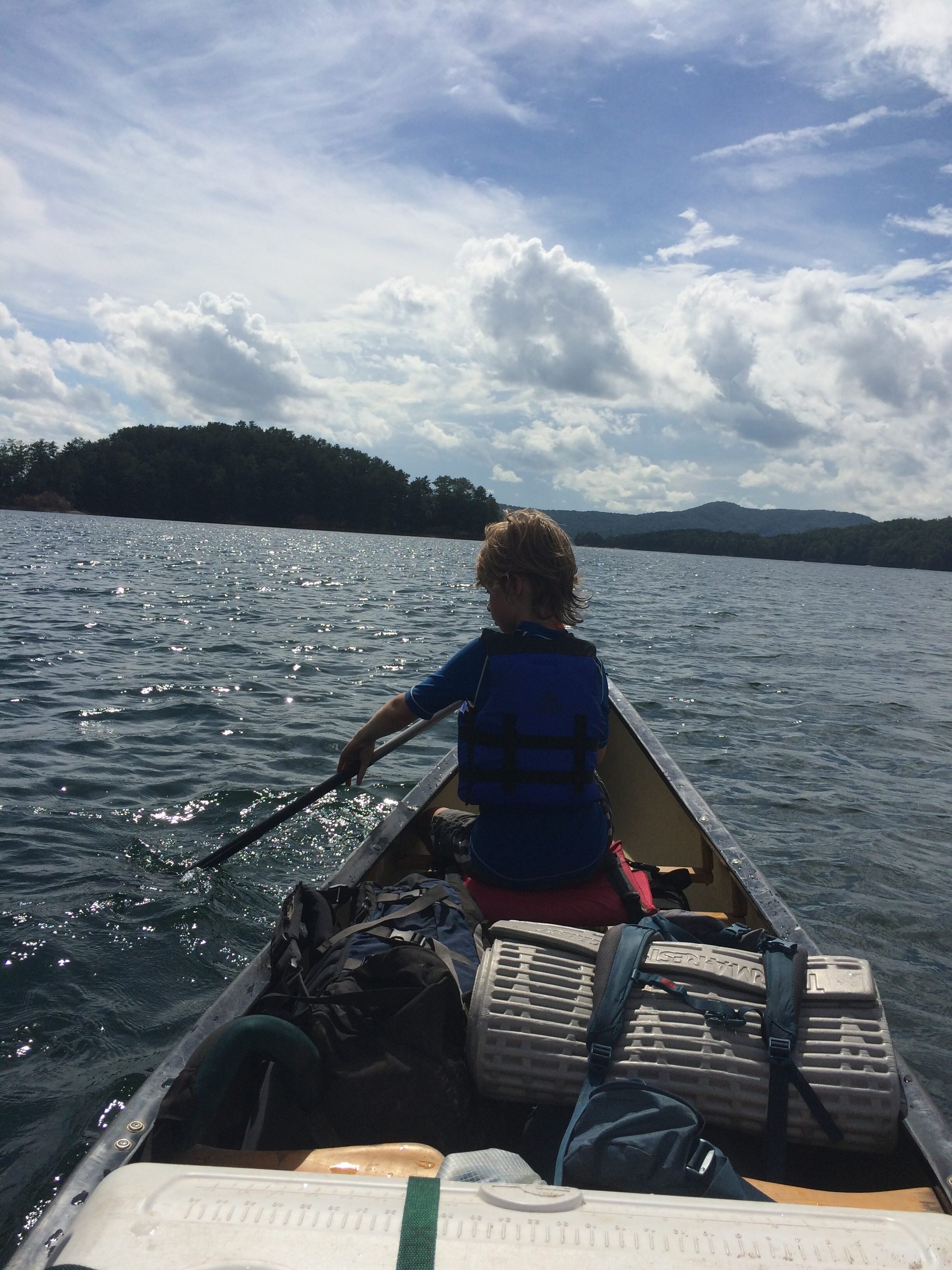Thoughts from the Front of the Boat
We all have control issues. For some of us, it’s right there on the surface. For others, there’s a slighter, more subconscious element about it. But it’s there. This need is why get a little twitchy when the dishwasher’s not loaded right. It’s why we want the dollar bills facing the same direction and our toilet paper roll to be hung the absolutely correct way. It’s okay; we’re human, and it helps us find order in this tangled web of chaos and inconsistency.
But in education, control has significant drawbacks. For instance, envision a reading assignment: the very word has authoritative connotations. It could be set by the teacher. There could be thirty pages to read with an essay on the author’s theme due by next Monday. You, as a student, would perhaps feel the pressure, the fear of disapproval, and maybe you’d trudgingly slog through it. On the other hand, in an alternate universe, picture students choosing their own books. They could set their own reading goals. They could draw their own interpretations and present them in their own ways. Now, you’re presumably an independent adult who doesn't especially care for people directing your every move. So which assignment would you choose? Would you want the control of your education to belong to your teacher or yourself?
As educators, our job is not really to teach. The core of our job is to help create and foster learners. To do that, we need to pull ourselves away from the paradigm of the school marm: a ringmaster, a holder of information, standing tall in front of a group of seated children in orderly rows. We must admit that we don’t hold the knowledge, we don’t have all the answers, and perhaps we don’t actually have the best methods to solve all the problems. Historically speaking, adults haven’t always had the best ideas anyway (ignoring climate change, introducing kudzu, and the Ford Edsel, for examples). It’s time to abandon our perception of control, and trust our kids to make better choices. If you really want to experience this letting go, get outside. Perhaps one of the greatest aspects about outdoor education is that, really, at the core, in nature we have no control. We like to think we do. We, as humans, can affect it, sure. But in the end, Nature will barrel us over and keep on keeping on. When we get our students outside, not only is this apparent, but it soon becomes blatantly obvious. Performing Shakespearean scenes around a campfire is a beautiful goal. But when an hour-long storm cell comes barreling through with an inch of rain, flooding your campsite and all hopes of a fire, what happens then?
You let go. And that’s okay, too. Just because you don’t have absolute control does not mean that your students aren’t learning. So it’s raining an inch per hour. Great. Let’s talk about run-off and erosion. Let’s huddle together under our dripping tarp and contemplate the importance of being prepared. Let’s go dance in the rain and remember that the molecular combination of two hydrogen atoms and one oxygen atom can be, in the end, really really fun.
Our class recently took a journey across a large mountain lake, carrying everything we’d need to survive our four day adventure strapped in the bottom of our canoes. We had itineraries and checkpoints and backup plans. (So I’m clear, letting go of some control doesn’t mean letting go of safety or effectively managing risk.) However, as is wont to happen, Nature did not account for our visit, and she went right on doing what she does, blowing wind, raining rain, and generally behaving like late summer weather behaves. And it was great. We adjusted, suffered some dampness, and we grew.But I struggled letting go of that control. I felt twitchy. The wind was casting our boats more sideways than forward. I needed to get to camp by three, so we could set up by four, and start food by five, so we could do our Shakespeare scenes before it got dark. Plus, my straw hat was getting saggy from the drizzle.
And to make it all the rosier, it wasn’t even my turn to be in the back of the canoe. I was in the front seat. The passenger seat. The assistant seat. I was not even captain of my own little ship. I was, at best, a first mate with false sense of power. My actual captain, a 12-year-old wearing a gardening hat with a 24 inch radius, had never before paddled a canoe. It was, generously speaking, not ideal.
The only thing harder than steering a canoe in the wind is being a person in the front of the canoe watching the boat being steered by the wind. The tip of the boat pointed in every direction but forward. My kind captain, despite his greatest efforts, had little in the way of control and there was nothing I could do. Within a ten-second span we were heading due north, then due south, and, inexplicably, completely stopped. So I did exactly what I could: I did nothing. I sat there and bobbed and ducked and weaved like a punch-drunk boxer on a boat.
That’s when I heard my captain exclaim, “I think I’m getting it!”
Was he getting it? Well, maybe. We were still stopped in the middle of the lake. But more importantly, what he was getting was confidence. To believe in yourself when you’re doing something new and unpredictable, that’s something that I couldn’t plan to teach if I tried. And to be fair, the boat did eventually begin to point to our actual destination. By nature, I’m a teacher. I have a vision of what I want, and generally, I have a general idea of how I want to get there. But we need to remember that, most of the time, our perception of control is an illusion. Kids are creative, independent thinkers. Nature is the unpredictable master of her fate. Often, the best I can do is hold on to the sides of the boat and trust my small captain to find his own path back to the port.
Written by Daniel Sprinkle


